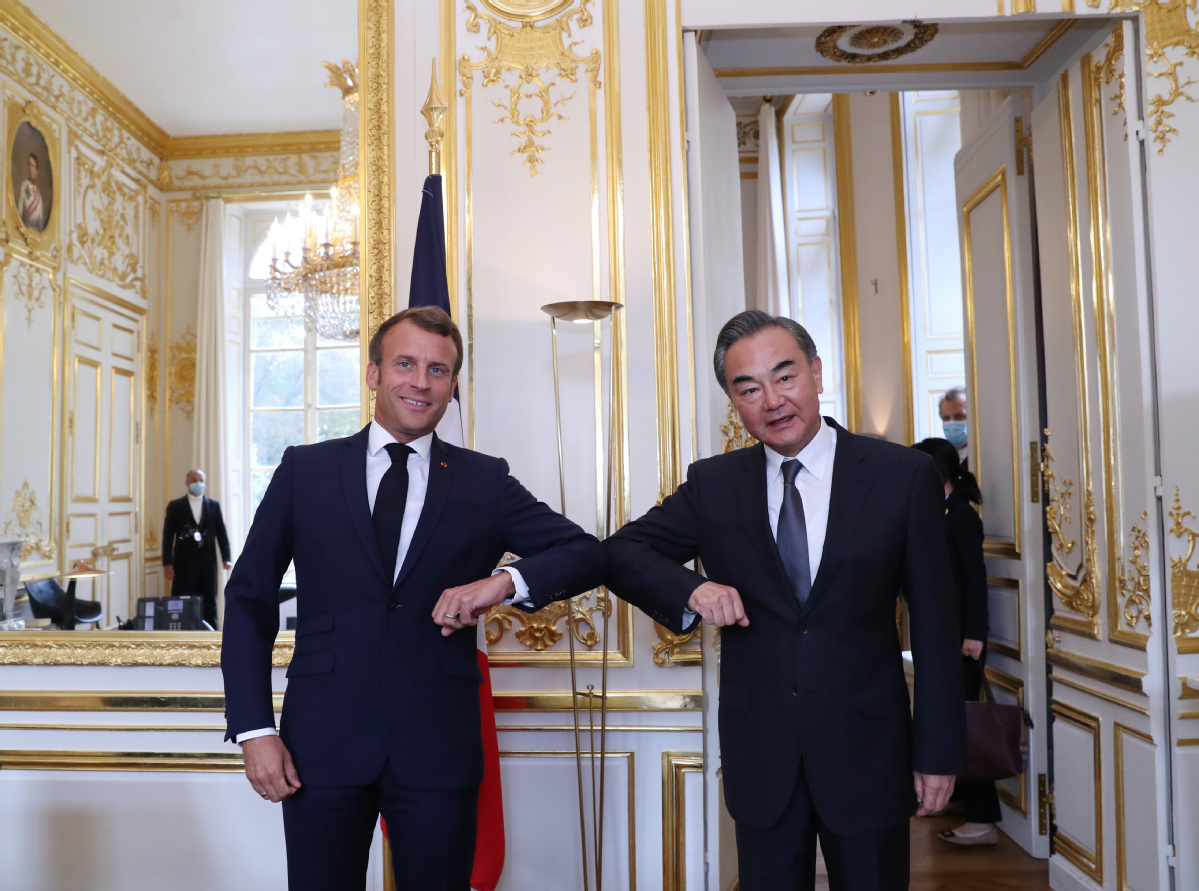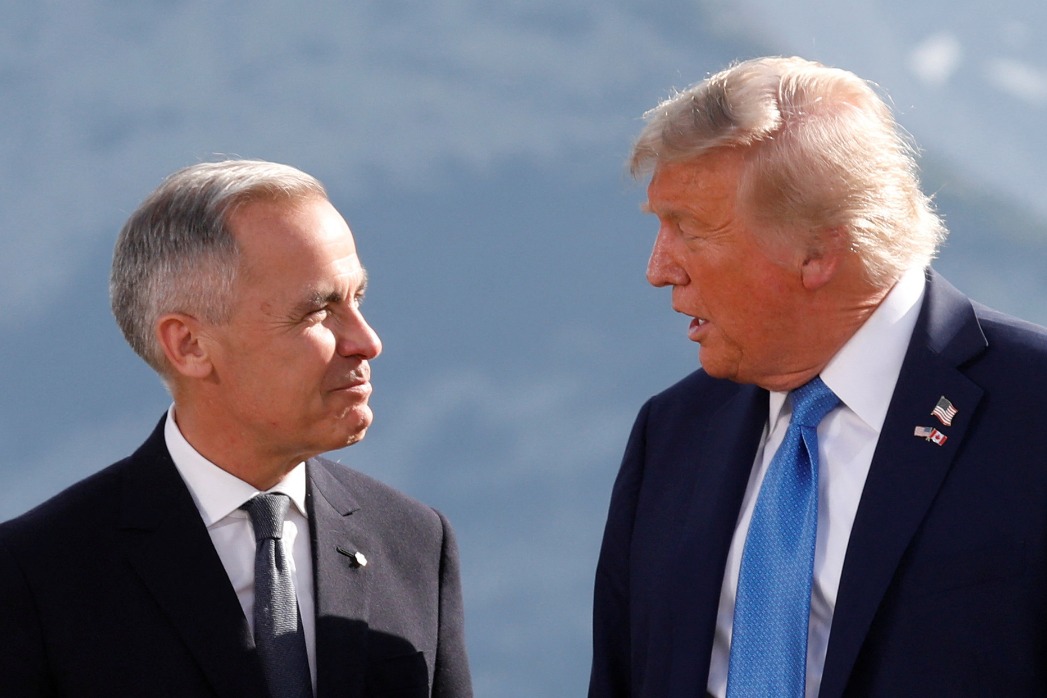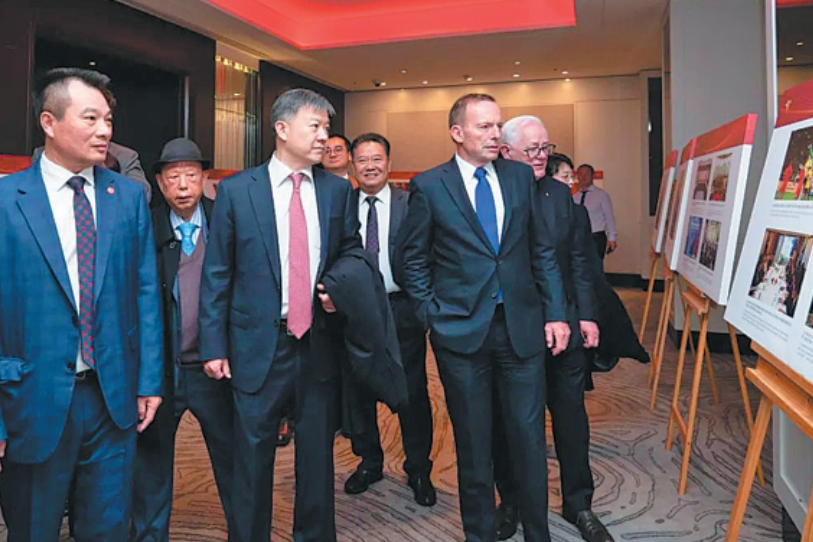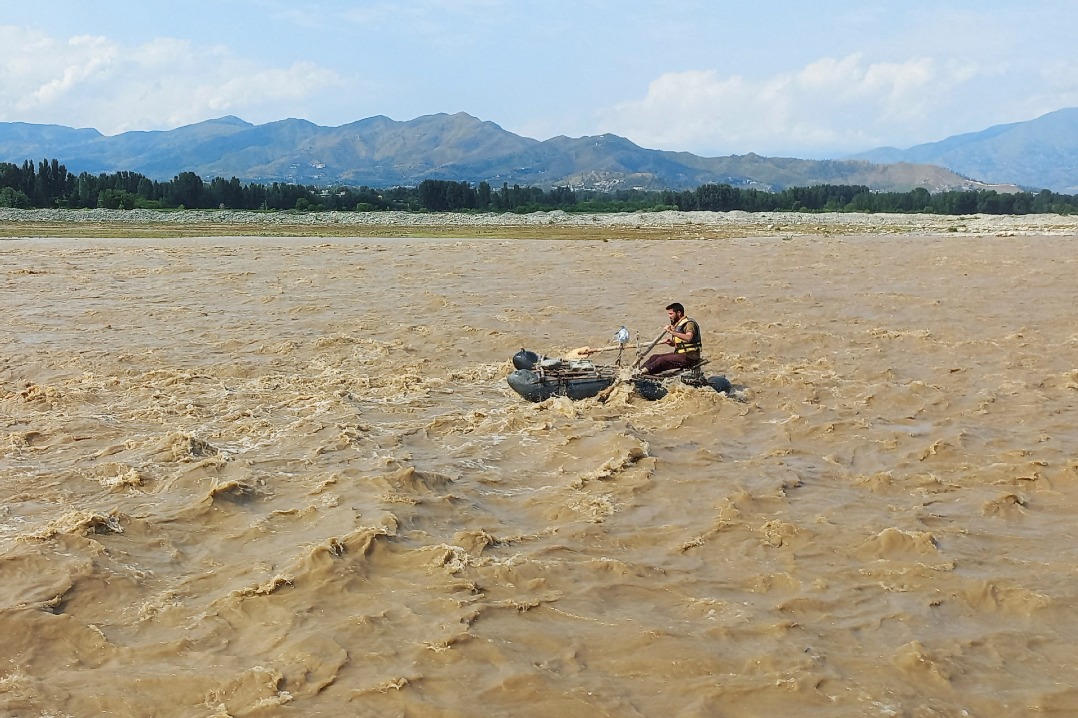Franco-Sino ties can act as stabilizer

The moment that the world is going through is marked by a high level of uncertainty related to a threatening pandemic, a major economic crisis, and tensions between the United States and China, which indicates they will continue whatever the results of the US election in November.

In these circumstances, the reaffirmation of the solidity of links between France and China appears to be an essential factor of stability for the world's equilibrium.
As China's return to a position of centrality in global affairs accelerates, France must keep distance from those who adopt positions that amount to an attempt to contain a fifth of the world's population.
In 1964, then French President Charles de Gaulle was the first in the West to recognize the People's Republic of China of Chairman Mao Zedong. Former US secretary of state Henry Kissinger and former US president Richard Nixon only followed the path opened by the French statesman as the US faced the Soviet Union and the Vietnam War.
In the 1990s, then French President Jacques Chirac was able to elevate the Franco-Chinese relationship to a strategic level.
It is for France not only to recognize a country and not only to extract all the potential from it in a bilateral perspective, but to take into account all that the Chinese power arising from the renaissance of an ancient civilization can bring to the world.
The US recognized a China that allowed it to weaken its great strategic rival, the Soviet Union. It was the instrumentalization of China made possible by an asymmetry of power that was at the heart of the Kissingerian approach. As the power gap narrows between Washington and Beijing, this strategy is obviously obsolete.
France must demonstrate that besides the Kissingerian approach, and that, in contrast to a posture that would bring us back to a new Cold War, there is a third possible way.
In the 21st century, it is about synergizing with Chinese power for itself as much as it continues to demonstrate that it is in part the solution to the great economic, environmental and geopolitical problems of our time.
If it succeeds, France will once again inspire the US, which will find the path to reasoned internationalism.
The theory being exposed, it is now a question of putting it into practice around six main axes: Sino-European relations, world governance, the environment, the great Afro-Eurasian arc, economic relations and culture.
The first step is to consolidate relations between Europe and China. Paris and Beijing will have the opportunity to do so during the next Sino-European summits prepared by the German presidency.
Since the election of US President Donald Trump, China has de facto become the main external support for European integration. Paris and Beijing must boost relations between the European Union and China so that their interactions can continue to weigh in on a world whose center of gravity has rapidly shifted around the Pacific.
In the post-Brexit world, France and China happen to be the only two permanent members of the United Nations Security Council representing the EU and Asia. Synergies between Paris and Beijing have a particular role to play on issues that affect world security.
Second, an intelligent political articulation between what Laurent Fabius, the former French minister of foreign affairs, rightly called the power of influence of France and the growing centrality of China, must contribute to the progress of world governance.
One would expect the French and Chinese diplomacies to push for key reforms of the World Trade Organization. The best way to protect multilateralism is to reform it.
Third, on environmental issues, France and China, architects, along with others, of the success of the UN climate conference in 2015, must ensure that the Paris Agreement is implemented despite the retrograde attitude of the current US administration.
The two countries must signal to the world that the economic recovery that must be orchestrated after the shock of COVID-19 is an opportunity to put ecology at the center of contemporary societies.
Fourth, Franco-Chinese action can also follow the perspective opened up by the China-proposed Belt and Road Initiative. This vision for new Silk Roads takes into account Eurasian realities, but it also involves the African continent. Thanks to its historic ties with Africa, France is ideally placed to co-construct an Afro-Eurasian arc of prosperity and peace.
While multiple crises weaken Mali, France and China should take strong initiative concerning a key country in the Sahel region of Africa.
Such an approach would also introduce a much-needed new dynamic into Franco-Chinese economic relations. This is the fifth axis of Franco-Chinese strategic action.
Economic relations between France and China are important, but there is considerable space to develop trade and investment between the two countries, with China only being France's sixth-largest trading partner.
It is also imperative to stop the downward trend in Chinese investments in France - a dizzying drop in 2019 - through a series of actions targeting the post-COVID world.
Finally, culture must play a leading role in Franco-Chinese relations. The two countries should contribute to enriching the discussion around new technologies and their impact on humanity.
A structured Franco-Chinese dialogue on the political, societal and cultural implications of artificial intelligence could be the core of a larger conversation on what is the entry into a new era whose discussion should not be the monopoly of private companies that generate it.
The long-standing mutual appreciation between the two countries constitutes the unique and deep foundations of Franco-Chinese relations.
The rapid changes in the world do not necessarily diminish their importance, but in order for the relations to remain mutually beneficial and, beyond that, significant on the global level, Paris and Beijing must have the proper appreciation of their potential and a strategic understanding on the concrete objectives to be achieved.
The author is a Sinologist and founder of the Europe-China Forum.
The views do not necessarily reflect those of China Daily.

































